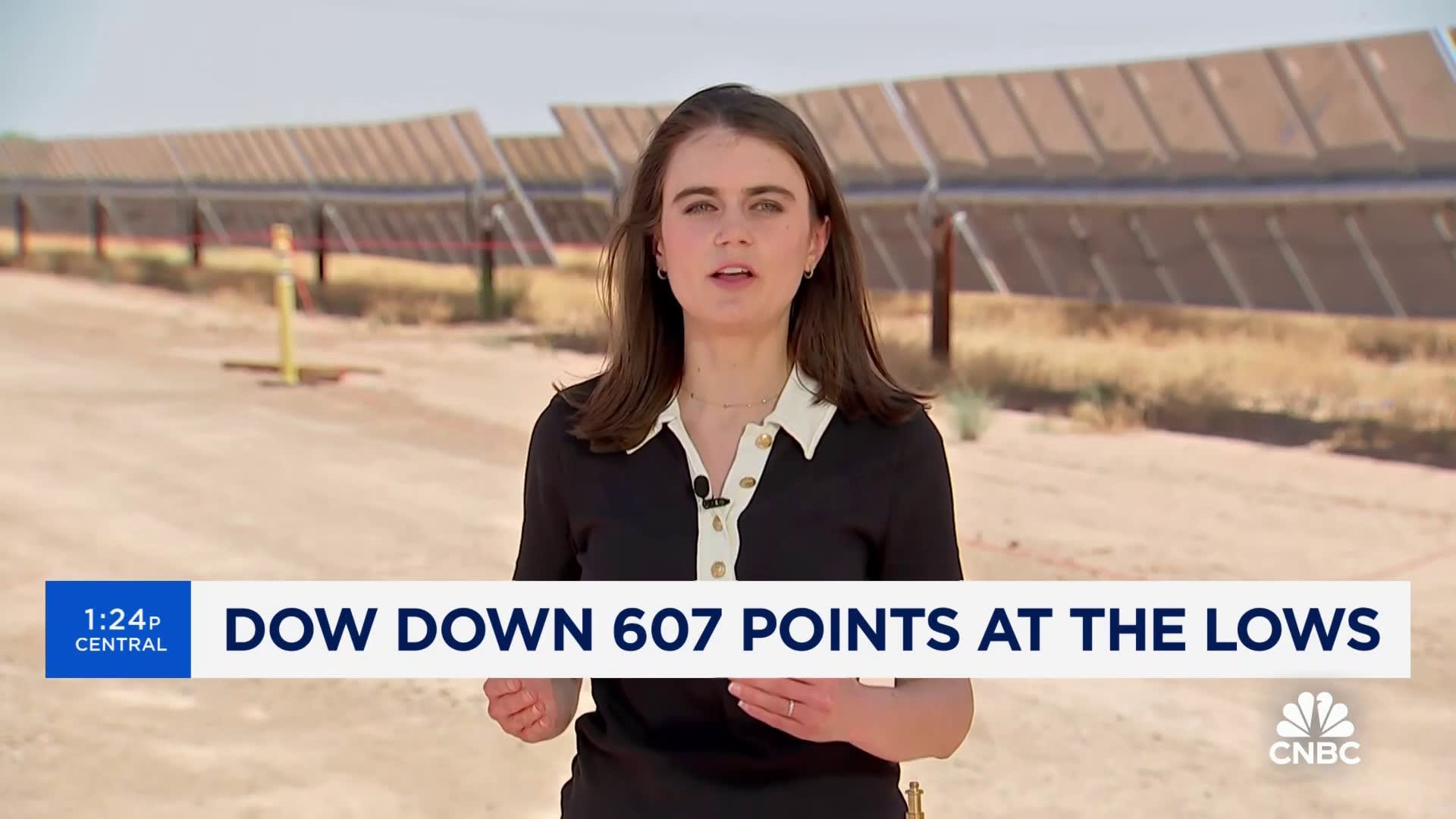The aerial view reveals the mutual benefits of combining solar energy production and agricultural land use. Farmers can lease their land to solar energy developers, diversifying their income streams while maintaining agricultural activities on the remaining areas. This symbiotic relationship supports sustainable development by reducing greenhouse gas emissions and promoting renewable energy adoption.
Shih-wei | E+ | Getty Images
Google will partner with BlackRock to develop a 1 gigawatt pipeline of new solar capacity in Taiwan, the U.S. tech giant announced Monday as it seeks to boost energy capacity and cut carbon emissions amid the artificial intelligence boom.
The deal will see Google make a capital investment, yet to be approved by regulators, in Taiwanese solar developer New Green Power “to facilitate the buildout of its large-scale solar pipeline.”
Google did not reveal how much it was investing into New Green Power, a BlackRock portfolio firm.
The investment will boost clean energy on Taiwan’s local electricity grid, and help Google reach its goal of achieving net-zero emissions across all its operations and value chain by 2030, the company said.
The new solar capacity will help power Google’s data centers and cloud region in Taiwan, the press release said. Some of the clean energy capacity will also be offered to Google’s chip suppliers and manufacturers in the region, it said.
“We expect to procure up to 300 [megawatts] of solar energy from this pipeline through power purchase agreements (PPAs) and the associated energy attribute certificates (Taiwan Renewable Energy Certificates or T-RECS) to help meet electricity demand from our data center campus, cloud region and office operations in Taiwan,” Amanda Peterson Corio, global head of data center energy at Google, said in a blog post Monday.
Taiwan produces nearly 60% of the world’s semiconductor chips and accounts for an even bigger share of advanced AI processors, according to global consulting firm EY. Chip fabrication facilities are among the most energy-intensive facilities in the world as chip manufacturing is a long and complex process.

However, about 97% of Taiwan’s energy is generated from non-renewable sources, including coal and natural gas, according to data from Energy Administration under Taiwan’s Ministry of Economic Affairs.
This calls for the need to boost renewable energy sources.
“As we witness growth in demand for digital services, powered by AI and data-centric technologies, it becomes imperative to invest in clean energy,” said David Giordano, BlackRock’s global head of climate infrastructure.
Singapore in May said it was pushing for green data centers as the explosive demand for artificial intelligence puts a strain on energy resources. The goal is to provide at least 300 megawatts of additional capacity in the near term, with more through “green energy deployments,” the government said.
Renewable energy development in Asia-Pacific is growing strongly, but from a low base, a Boston Consulting Group report on April 23 showed. By 2030, renewable energy is predicted to account for 30% to 50% of the energy mix in most of the region’s markets, the report said, adding that “significant investment” is needed.
EMEA Tribune is not involved in this news article, it is taken from our partners and or from the News Agencies. Copyright and Credit go to the News Agencies, email news@emeatribune.com Follow our WhatsApp verified Channel





